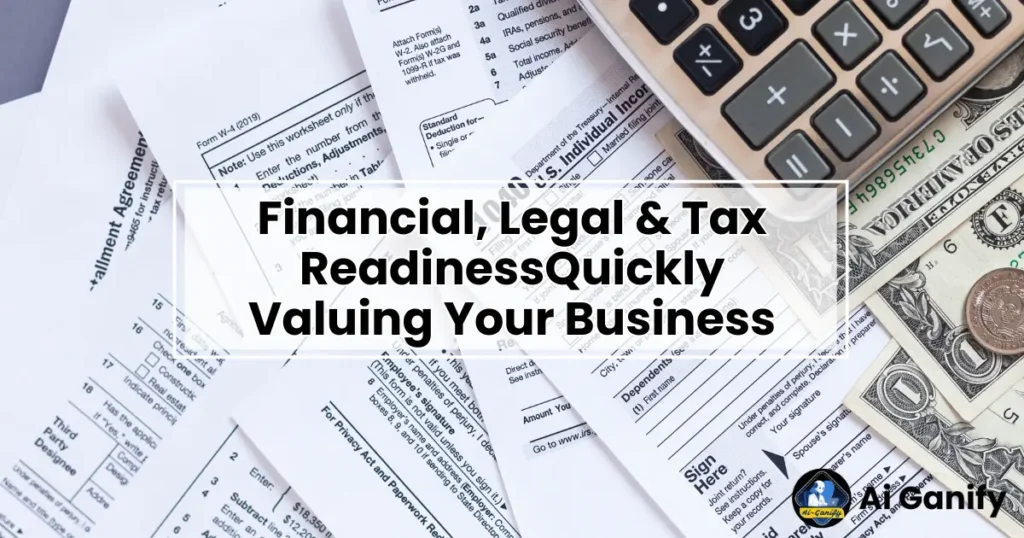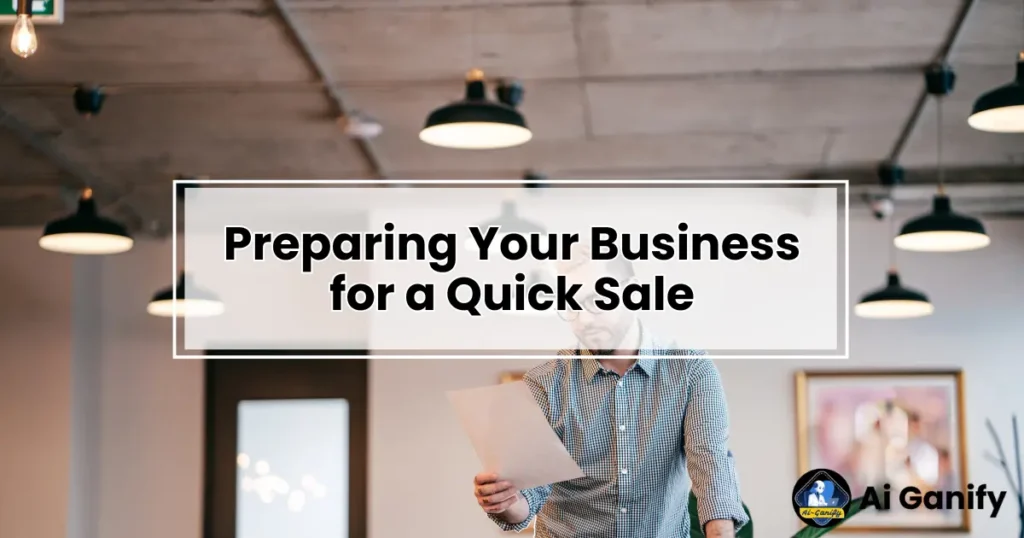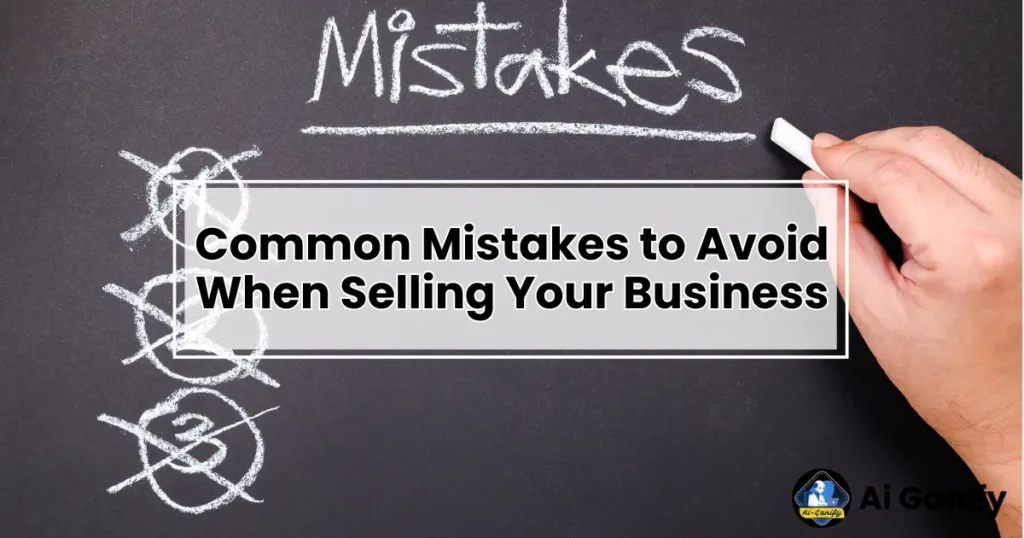
Why Speed Matters in Selling Your Business?
When people hear “sell your business fast,” they often assume it means selling at a loss or making desperate decisions.
That’s not true!
Many businesses sell quickly without compromising their value. The key is strategy—knowing how to position your business, attract serious buyers, and close the deal efficiently.

Why Do Business Owners Want a Quick Sale?
There are several reasons why business owners look for a fast exit:
✅ Retirement: You’re ready to step away and enjoy life.
✅ Financial Needs: Unexpected situations like medical bills or debt make selling a priority.
✅ Market Timing: The industry is at its peak, and you want to sell before trends shift.
✅ Burnout: Running a business is exhausting, and you’re ready for a change.
✅ New Opportunities: You found something more exciting and need capital to move forward.
Regardless of the reason, you want to sell quickly and profitably—without feeling rushed or undervaluing your hard work.
The Hidden Costs of a Slow Sale
A slow sale isn’t just frustrating—it can be costly.
Imagine this: You’ve decided to sell your business, but months pass with no serious buyers. Meanwhile:
🚨 You’re still paying rent, salaries, and expenses.
🚨 Customers notice instability, causing a decline in sales.
🚨 Competitors sense an opportunity and take advantage of your delay.
A prolonged sale often reduces the perceived value of your business—making buyers wonder, “Why hasn’t this sold yet?”
Myth vs. Reality: Does Selling Fast Mean Selling Cheap?
🚫 Myth: “A quick sale means I have to accept a low-ball offer.”
✅ Reality: A well-prepared business can attract the right buyers who are willing to pay market value.
🚫 Myth: “Only struggling businesses sell fast.”
✅ Reality: Many profitable businesses sell quickly because they are positioned correctly and marketed strategically.
🚫 Myth: “Finding buyers takes months or years.”
✅ Reality: With the right valuation, marketing, and selling strategy, a business can sell within weeks.
Step 1: Quickly Valuing Your Business

Know Your Business’s Worth—Fast!
One of the biggest mistakes business owners make when selling quickly is guessing their price instead of using a strategy.
Price it too high, and buyers will ignore your listing.
Price it too low, and you’ll leave money on the table.
So, how do you accurately value your business—without spending months on calculations?
Let’s break it down into quick and easy steps.
1. Use Quick Valuation Methods
Here are the fastest ways to estimate your business’s worth:
✅ Revenue Multiples – Take your annual revenue and multiply it by an industry-standard figure. For example, if businesses in your niche sell for 2-3X revenue, and you make $200,000 per year, your business could be worth $400,000-$600,000.
✅ Profit-Based Valuation – Instead of revenue, use your annual net profit and apply a multiple (usually 2-5X profit). This is a stronger method because buyers care more about profit than total sales.
✅ Market Comparisons – Check online marketplaces (like Flippa, Empire Flippers, or Acquire.com) to see similar businesses and what they’re selling for.
2. Free Online Valuation Tools: Are They Accurate?
If you need a quick estimate, online tools like:
…can give you a rough idea of your business’s worth in minutes.
But don’t rely on them 100%.
These tools use general data, and they don’t consider factors like:
🚀 Brand strength
🚀 Customer loyalty
🚀 Growth potential
So, use them as a starting point, but double-check with other methods.
How to Price Competitively—Without Undervaluing
Pricing smartly can sell your business faster—without cutting your profits.
Here’s how:
✅ Check buyer psychology – A business listed at $495,000 sells faster than one at $500,000, even though the difference is small.
✅ Offer flexible terms – Some buyers prefer installments or seller financing (where they pay over time). This widens your pool of potential buyers.
✅ Create urgency – Use phrases like “priced for quick sale” or “motivated seller” in your listing (but only if you mean it). This attracts buyers who act fast.
Should You Get a Professional Valuation?
If your business is worth over $1M, consider hiring a business appraiser.
Professional valuations cost $3,000-$10,000, but they:
✔ Give you credibility with serious buyers.
✔ Ensure you don’t undervalue or overprice.
✔ Help with negotiations by backing up your price with data.
For smaller businesses, a CPA or financial advisor can review your numbers for a lower cost.
Final Thoughts: Your Business is Worth More Than Just Numbers
Valuation isn’t just about math.
Your business’s brand reputation, loyal customers, and growth potential also matter.
So, while numbers set the price, storytelling and marketing will sell it faster.
Step 2: Financial, Legal & Tax Readiness

Get Your Paperwork Right—Buyers Will Take You Seriously!
Imagine a buyer is interested in your business.
But when they ask for financial records, you scramble to find them.
Or worse—some documents are missing or outdated.
🚨 Deal Breaker! 🚨
Buyers want transparency. If your paperwork isn’t ready, they’ll walk away or lower their offer.
Let’s make sure that doesn’t happen.
1. Financial Documents You MUST Have
Before listing your business, get these financial records in order:
✅ Profit & Loss Statements (Last 3 Years) – This shows your revenue, expenses, and net profit. Buyers use this to judge if your business is profitable and stable.
✅ Tax Returns (Last 3 Years) – Buyers want proof that your numbers are real. Tax returns help them verify your revenue.
✅ Balance Sheet – This lists your assets (cash, equipment, inventory) and liabilities (loans, debts, unpaid expenses).
✅ Cash Flow Statement – Shows how money moves in and out of your business each month. Buyers love a healthy cash flow.
✅ List of Business Assets – This includes physical assets (like equipment) and intangible assets (like brand value and customer base).
✅ Employee & Contractor Payroll Records – Buyers want to know about your staff costs and if they need to keep employees after the sale.
2. Legal Documents to Prepare
To avoid legal headaches, get these documents ready before buyers ask:
✔ Business Licenses & Permits – Buyers need to know your business is legally compliant. Missing permits = delayed sale.
✔ NDAs (Non-Disclosure Agreements) – Before sharing sensitive financials, ask buyers to sign an NDA to protect your business info.
✔ Contracts with Suppliers & Clients – If you have long-term agreements, buyers need to see them. This adds value to your business.
✔ Lease Agreements – If your business operates from a physical location, buyers want to know the rental terms.
✔ Intellectual Property (Trademarks, Patents, Copyrights) – If your business owns a brand name, patents, or unique designs, make sure legal ownership is clear.
3. Understanding Tax Implications (So You Keep More Money!)
Selling a business means taxes—but smart planning can save you thousands.
💰 Capital Gains Tax – When you sell, you profit from the sale. That profit is taxed. Lower this by structuring the deal strategically.
💰 Installment Sale Benefits – Instead of getting one big payment, you can sell in installments to spread out taxes.
💰 Deductions & Write-Offs – Some expenses, like broker fees, legal costs, and accounting fees, are tax-deductible.
4. Bonus: A Quick Way to Speed Up the Process
If paperwork sounds overwhelming, here’s a pro tip:
👉 Hire a Business Sale Accountant or Lawyer.
They prepare everything, review contracts, and protect your interests—saving you time and stress.
Final Thoughts: Paperwork = A Faster, Smoother Sale
Think of your financial and legal documents as a trust signal.
When a buyer sees everything ready, they feel confident.
No surprises. No delays.
Step 3: Preparing Your Business for a Quick Sale

Make Your Business Irresistible to Buyers!
Imagine two businesses for sale.
One is a mess—unorganized operations, outdated systems, and dependent on the owner for everything.
The other is smooth and well-structured, with clear processes and a team that keeps things running.
Which one do you think sells faster and for a better price?
Buyers don’t just buy a business. They buy efficiency, ease, and growth potential.
Here’s how to prepare your business so buyers line up to make an offer.
1. Make Your Business Run Without You
A business that depends too much on the owner is risky for buyers.
If you handle every decision, buyers worry:
👉 “What happens when the owner leaves?”
👉 “Will the business fall apart?”
To remove this fear, make sure your business can operate smoothly without you.
✔ Document Standard Operating Procedures (SOPs) – Write down step-by-step instructions for daily tasks.
✔ Train Employees to Handle Key Roles – Delegate responsibilities so your team can run things.
✔ Automate Where Possible – Use tools for billing, customer service, and inventory to reduce manual work.
2. Boost Your Digital Presence for Buyer Confidence
A business with a strong online presence sells faster because it shows trust and credibility.
Buyers check everything online before making a move.
💻 Professional Website – If your website looks outdated, buyers might think your business is outdated too.
⭐ Positive Customer Reviews – Buyers love businesses with great online reviews. Encourage customers to leave honest feedback.
📱 Active Social Media & SEO – A business with a solid digital footprint attracts more buyers and customers.
3. Keep Employees & Customers Comfortable During the Transition
A common fear for buyers? Losing employees and customers after the sale.
Here’s how to make sure that doesn’t happen:
👥 Talk to Key Employees Early – If your team knows the plan, they’re less likely to quit out of uncertainty.
📢 Reassure Customers – Loyal customers are a business’s biggest asset. Let them know the business will continue running smoothly.
🤝 Offer Buyer Support – Some buyers feel more confident if the seller stays for a short transition period to train them.
4. Fix Small Problems BEFORE Buyers Notice Them
Think of selling your business like selling a house.
If a house has leaky pipes, chipped paint, or broken windows, buyers bargain hard or walk away.
The same applies to your business!
🔧 Clean Up Financial Leaks – Cut unnecessary expenses to boost profits before listing your business.
📊 Fix Operational Weaknesses – If customers complain about slow service or outdated tech, improve those areas.
📞 Check Customer Service Response Time – A business with fast, friendly customer support looks more valuable.
Final Thoughts: Make Your Business Buyer-Ready
A buyer-ready business sells fast and for a great price.
✔ Make sure your business runs without you.
✔ Strengthen your digital presence to attract buyers.
✔ Keep employees and customers happy during the transition.
✔ Fix small issues before they become buyer concerns.
Now that your business is optimized and buyer-friendly, it’s time to attract the right buyers quickly!
Step 4: The Best Strategies to Attract Buyers Quickly

Get Buyers Lining Up for Your Business!
Selling a business fast doesn’t mean rushing the process—it means using smart strategies to attract serious buyers quickly.
If you put your business in the right places, showcase why it’s valuable, and reach the right audience, buyers will come to you instead of you chasing them.
Here’s how to get your business noticed fast and sell it for the best price possible.
1. Market Your Business in the Right Places
If no one knows your business is for sale, how can you expect to find buyers?
The key is to market it where serious buyers are looking.
📍 Broker Networks – Business brokers already have connections with investors and buyers looking for opportunities.
💻 Online Marketplaces – Platforms like Flippa, Empire Flippers, and Acquire.com help you reach buyers worldwide.
📩 Direct Outreach – Some of the best buyers might be right in your industry—competitors, suppliers, or even employees.
2. Build Trust With Social Proof
People don’t just buy businesses—they buy trust and confidence.
When buyers see proof that your business is strong, they act faster.
✔ Customer Testimonials – Ask happy customers to share their positive experiences.
✔ Strong Online Reviews – Buyers love businesses with a good reputation on Google, Yelp, or Trustpilot.
✔ Branding & Media Mentions – If your business has been featured in blogs, news articles, or industry publications, highlight it!
3. Target International Buyers for a Faster Sale
The right buyer isn’t always in your local area.
Many international investors are looking for stable businesses to buy, especially in the U.S., Canada, U.K., and Australia.
🌍 List Your Business on Global Marketplaces – Some platforms specialize in international buyers.
📈 Highlight Growth Potential – International buyers look for scalable businesses with a solid customer base.
💬 Offer a Clear Transition Plan – Buyers from different countries may need extra guidance on running the business.
4. Make Your Business Look Like a No-Brainer Investment
Buyers act fast when they see clear value and low risk.
Here’s how to make your business irresistible:
✅ Show Profits Clearly – A simple, well-organized profit & loss statement helps buyers trust the numbers.
📊 Present Growth Trends – If sales are increasing, highlight it with a chart or graph.
🔍 Be Transparent About Challenges – Buyers appreciate honesty. If there’s a small issue, explain how to fix it.
Final Thoughts: Get Your Business in Front of the Right Buyers
Attracting buyers fast isn’t about luck—it’s about strategy.
✔ List your business where serious buyers look.
✔ Use customer reviews and branding to build trust.
✔ Reach international buyers for a faster sale.
✔ Present your business as a strong, low-risk investment.
The more demand you create, the faster your business will sell!
Step 5: Should You Hire a Business Broker?

Do You Really Need a Business Broker?
Selling your business is a big deal. You want the best price, the right buyer, and a smooth transaction.
But should you go solo or hire a business broker to help?
Let’s break it down so you can make the best decision for your sale.
1. What Does a Business Broker Do?
Think of a business broker as a real estate agent—but for businesses.
Their job is to connect sellers with buyers, handle negotiations, and make sure the sale goes smoothly.
Here’s what they can do for you:
✔ Find Qualified Buyers – They know where to look and who’s serious about buying.
✔ Negotiate a Better Price – Brokers are skilled at getting you the best deal possible.
✔ Handle the Paperwork – They take care of contracts, legal documents, and important details.
✔ Protect Your Privacy – Instead of publicly listing your business, they confidentially market it to trusted buyers.
2. When Hiring a Broker Makes Sense
A broker isn’t always necessary, but in some cases, they can be a game-changer.
✔ Your Business is Complex – If your business has multiple revenue streams, partnerships, or intellectual property, a broker can navigate the details.
✔ You Want to Sell Fast – Brokers have buyer connections that can speed up the process.
✔ You Don’t Have Time – Running a business while trying to sell it can be overwhelming. A broker lets you focus on daily operations while they handle the sale.
✔ You Want the Best Price – Brokers understand market trends and can negotiate higher offers.
3. When You Might Not Need a Broker
A broker isn’t the only way to sell successfully. In some cases, you might be better off selling on your own.
🚫 You Already Have a Buyer – If you have an interested buyer (like an employee or competitor), you might not need a broker.
🚫 Your Business is Small & Simple – If you run a small online store or a local shop, you can list it yourself on online marketplaces.
🚫 You Want to Save on Fees – Brokers typically charge 10-15% of the final sale price. If you can sell without one, you keep more profit.
4. How to Choose the Right Business Broker
If you decide to work with a broker, picking the right one is key.
📌 Check Their Experience – Look for brokers who have sold businesses like yours before.
📌 Ask About Their Buyer Network – The best brokers already have buyers lined up.
📌 Understand Their Fees – Make sure you know the commission structure before signing anything.
📌 Read Reviews & Ask for References – A good broker will have positive testimonials and past clients willing to recommend them.
Final Thoughts: Should You Use a Broker or Sell on Your Own?
It all comes down to your business size, timeline, and goals.
✔ Hire a broker if your business is complex, you need a fast sale, or you want to maximize your price.
✔ Sell on your own if you already have a buyer, your business is simple, or you want to avoid broker fees.
Whatever you choose, make sure you understand the process, protect your business’s value, and negotiate wisely.
Step 6: Closing the Deal Successfully

The Final Stretch: Getting the Deal Done
You’ve found the right buyer, negotiated a great price, and now it’s time to seal the deal.
This stage is crucial. One small mistake can delay the sale or even cause it to fall apart.
Let’s go step by step to make sure you close your business sale smoothly and successfully.
1. Finalizing the Terms of the Sale
Before signing anything, both you and the buyer must agree on all the details.
Here are some key points to double-check:
✔ Purchase Price – Make sure the final amount matches what was agreed upon.
✔ Payment Structure – Will it be a lump sum payment or installments? Are there any seller-financing terms?
✔ Assets Included – Are equipment, inventory, customer lists, or intellectual property included in the sale?
✔ Liabilities & Debts – Who is responsible for any outstanding business loans or taxes?
✔ Transition Period – Will you stay on for a few months to help the buyer? If yes, what will that look like?
Everything needs to be clear and in writing before moving forward.
2. Legal & Financial Due Diligence
At this stage, lawyers and accountants step in to review everything.
📌 Legal Review – A business attorney will draft or review the sale agreement to ensure everything is legally sound.
📌 Financial Verification – The buyer’s accountant may do a final check on your business’s finances to confirm everything is accurate.
📌 Government Approvals – Depending on your business type, you may need licenses, permits, or tax clearance before transferring ownership.
💡 Tip: Always use your own attorney. Don’t rely on the buyer’s lawyer to protect your interests.
3. Signing the Sale Agreement
Once both sides are happy, it’s time to sign the final contract.
This document will officially transfer ownership and lock in the sale terms.
A few things to note:
✔ Make Sure All Parties Sign – If your business has multiple owners, everyone must approve and sign the agreement.
✔ Keep Copies of Everything – You’ll need these for tax filings, future legal protection, and records.
✔ Confirm Payment Terms – If you’re receiving an upfront payment, make sure it’s processed before handing over assets.
4. Handover & Transition Plan
Once the deal is signed, your job isn’t necessarily done yet.
Most business sales include a transition period where you help the new owner take over.
Here’s what this might involve:
🔹 Training the New Owner – Teaching them about daily operations, customer management, and key business processes.
🔹 Introducing Employees & Customers – If you have staff or a loyal customer base, a smooth introduction can help maintain trust.
🔹 Providing Post-Sale Support – Some deals require the seller to be available for a few months in case any issues come up.
💡 Tip: A well-structured handover increases buyer confidence and helps ensure your business continues to succeed.
5. Receiving Your Payment & Taxes
The final step—getting paid! 🎉
But before you celebrate, keep in mind:
✔ Confirm Full Payment – If you’re getting a lump sum, verify the funds are in your account before handing over ownership.
✔ Understand Tax Implications – Business sales are taxed differently depending on how the deal was structured. Consult your accountant to plan ahead.
✔ Notify Tax Authorities & Close Accounts – You may need to file final tax returns and officially close business accounts.
Final Thoughts: Wrapping Up the Sale Successfully
Selling a business isn’t just about finding a buyer—it’s about closing the deal the right way.
✔ Double-check all contract details.
✔ Have legal and financial professionals review everything.
✔ Ensure a smooth handover to the new owner.
✔ Get your payment and settle tax obligations.
Once you’ve completed these steps, you can officially say goodbye to your business and hello to new opportunities! 🚀
Common Mistakes to Avoid When Selling Your Business

Avoid These Costly Mistakes & Sell Your Business the Right Way
Selling your business is a huge milestone, but it’s also filled with potential pitfalls.
Some mistakes can cost you time, money, or even the deal itself.
To make sure you get the best outcome, let’s break down the most common mistakes business owners make when selling—and how to avoid them.
1. Not Knowing Your Business’s True Value
Many business owners overestimate or underestimate their company’s worth.
✔ If you overprice it, buyers won’t be interested.
✔ If you underprice it, you leave money on the table.
💡 How to Avoid This:
🔹 Get a professional business valuation from an expert.
🔹 Compare recent sales of similar businesses in your industry.
🔹 Understand what drives value—profit margins, assets, customer base, and brand reputation all matter.
2. Poor Financial Records & Organization
If your financials are messy, buyers won’t trust your numbers.
Many deals fall through because the seller can’t provide clear proof of revenue, expenses, and profits.
💡 How to Avoid This:
✔ Work with an accountant to clean up your books.
✔ Keep detailed records of revenue, expenses, assets, and debts.
✔ Be ready to answer any financial questions from buyers.
3. Waiting Too Long to Sell
Many business owners wait until sales start dropping before they decide to sell.
But buyers want a business that’s growing, not struggling.
💡 How to Avoid This:
✔ Plan your exit at least 1-2 years in advance.
✔ Sell when your business is doing well—it will attract more buyers and get a higher price.
✔ Think like an investor. Would you buy a declining business? Probably not.
4. Trying to Sell Without Professional Help
Some business owners think they can handle the sale alone to save on fees.
But selling a business is complex, and small mistakes can cost you big time.
💡 How to Avoid This:
✔ Hire a business broker to find the right buyers and negotiate deals.
✔ Work with an attorney to ensure the contracts protect you.
✔ Get a tax expert to minimize the taxes you’ll pay on the sale.
5. Not Pre-Qualifying Buyers
Not all buyers are serious. Some just want to snoop into your business.
Others don’t have the funds to buy.
💡 How to Avoid This:
✔ Ask buyers for proof of funds before sharing sensitive details.
✔ Use non-disclosure agreements (NDAs) to protect your information.
✔ Work with a broker to screen buyers before you waste time.
6. Rushing the Process
Selling a business takes time—usually 6 months to 2 years.
If you rush, you might accept a low offer or miss important details in the contract.
💡 How to Avoid This:
✔ Be patient and wait for the right buyer.
✔ Review all offers carefully—the highest offer isn’t always the best if it comes with bad terms.
✔ Make sure the buyer can actually run the business successfully—you don’t want your legacy to fail.
7. Neglecting the Business During the Sale
Some owners get so focused on selling that they forget to keep running the business.
If sales drop while you’re negotiating, buyers may back out or lower their offer.
💡 How to Avoid This:
✔ Keep growing your business while selling—it keeps it attractive.
✔ Delegate tasks to a trusted manager so the business stays strong.
✔ Remember: The deal isn’t done until the money is in your account.
Final Thoughts: Sell Smart & Avoid Regrets
Selling your business is a big decision, and avoiding these common mistakes can help you:
✔ Get the best price for your business.
✔ Find the right buyer who will keep it thriving.
✔ Walk away with no regrets and a strong financial future.
Take your time, plan ahead, and get the right experts on your side.
Life After Selling Your Business: What’s Next?

A New Chapter Begins
You’ve sold your business. The papers are signed, the money is in your account, and your role as a business owner is officially over.
Now what?
For many entrepreneurs, selling a business can feel both exciting and overwhelming.
Some feel a huge sense of relief, while others experience a loss of purpose after letting go of something they built from the ground up.
The good news? You’re in control of what happens next.
Let’s explore some smart steps to make the most of this new chapter in your life.
1. Take a Break & Celebrate 🎉
You’ve just achieved something most business owners dream of—a successful sale.
Before jumping into anything new, give yourself permission to take a break.
Whether it’s a vacation, a few weeks of relaxation, or just time to enjoy hobbies, this is your chance to reset.
2. Handle Your Financial Future
Selling a business often means receiving a large sum of money all at once.
Managing it wisely is critical for long-term security.
✔ Work with a Financial Advisor – They can help you invest, plan for taxes, and protect your wealth.
✔ Clear Any Remaining Debts – If you have business-related loans, taxes, or outstanding bills, now is the time to settle them.
✔ Decide on Your Next Financial Goals – Do you want to invest in real estate? Start another business? Retire early? Having a plan keeps your money working for you.
💡 Tip: A sudden windfall can disappear fast without a clear strategy. Avoid big, impulsive purchases until you have a solid financial plan.
3. Explore New Opportunities
For many former business owners, the thought of retirement feels too slow.
If you still have the drive to create, here are some exciting paths you can take:
🔹 Start Another Business – Many entrepreneurs sell their first business and then launch another one with more experience and capital.
🔹 Invest in Startups – Use your knowledge and funds to back promising businesses.
🔹 Become a Consultant – Your experience is valuable! Help other businesses grow and get paid well for your insights.
🔹 Teach & Mentor – Many ex-business owners find fulfillment in coaching new entrepreneurs.
💡 Example: If you ran a successful e-commerce store, you could teach others how to build one and earn income from courses or coaching.
4. Focus on Personal Growth
For years, your business may have been your main focus.
Now is the perfect time to invest in yourself.
✔ Learn Something New – Take a class, learn a new skill, or explore a hobby you never had time for.
✔ Improve Your Health – Many business owners neglect their health during the grind. Now’s the time to focus on fitness, nutrition, and well-being.
✔ Reconnect with Loved Ones – Business ownership can be demanding. Spend more quality time with family and friends.
💡 Tip: Some entrepreneurs take a “gap year” after selling their business—traveling, exploring new interests, and figuring out what they truly want next.
5. Give Back & Leave a Legacy
Many successful entrepreneurs find fulfillment in giving back after selling their business.
Here’s how you can make an impact:
🔹 Support Charities & Causes – Donate to a cause that matters to you.
🔹 Start a Nonprofit – If you’re passionate about social change, consider launching a nonprofit organization.
🔹 Offer Scholarships or Grants – Help young entrepreneurs or students achieve their dreams.
💡 Example: If your business was in sustainable fashion, you could create a fund that supports eco-friendly startups.
Final Thoughts: Designing Your Next Adventure
Selling your business isn’t the end of your journey—it’s a fresh start.
✔ Take time to rest and enjoy your success.
✔ Plan your finances carefully.
✔ Explore new business, investment, or personal growth opportunities.
✔ Give back and make a lasting impact.
Whatever path you choose, remember—you’ve already built something great once. You can do it again. 🚀
Conclusion & Final Quick Tips
Selling your business might feel overwhelming, but with the right approach, you can sell fast and for a great price.
You’ve put in the work to build something valuable. Now, let’s make sure you get the best possible exit.
Quick Recap: The Fastest Ways to Sell Your Business
Want to sell your business fast and headaches? Follow these steps:
✔ Prepare your business for sale—clean up financials, streamline operations, and increase profitability.
✔ Know your business’s true value—get a professional valuation so you price it right.
✔ Find the right buyers—target serious investors or companies that benefit from your business.
✔ List your business in the right places—business brokers, online marketplaces, or private networks.
✔ Negotiate wisely—don’t jump at the first offer. Secure a deal that benefits you.
✔ Plan for the transition—help the new owner take over smoothly.
✔ Secure your financial future—work with experts to manage your money wisely.
Final Checklist for a Quick & Profitable Sale
Before you finalize the deal, use this last-minute checklist to make sure everything is in place:
✅ Business valuation completed
✅ Financial records are organized
✅ A strong buyer pipeline is in place
✅ Legal paperwork is reviewed by a professional
✅ Negotiation strategy is ready
✅ A transition plan is set up
✅ A personal financial plan is in motion
Everything checked off? Then you’re ready to sell with confidence!
Take Action—Your Future Starts Now!
The best time to sell your business is when you’re prepared.
If you wait too long, you risk missing out on the best opportunities.
💡 Here’s your next step:
✔ Start preparing your business for sale TODAY.
✔ Reach out to professionals who can guide you.
✔ Take control of your financial future and move forward with confidence.
Selling your business isn’t just about closing a chapter—it’s about opening new doors.
Your next big opportunity is waiting. Go for it! 🚀
Did this help you? If you found this guide valuable, share it with others who might need it! 🚀 Selling a business fast is a big deal—help someone else make the right move by passing this along. Drop a comment if you have questions or need more tips! 👇
